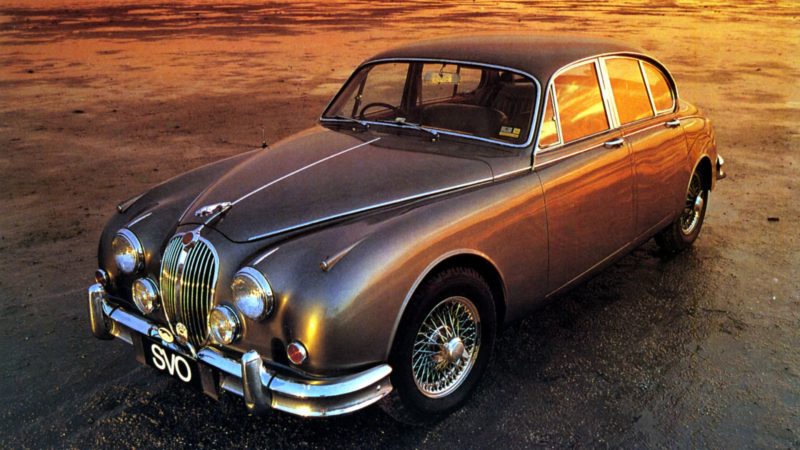I keep finding it a strange phenomenon. The new KNAC organ "the Auto, powered by CARROS" includes a nice interview with Ton Elias. The prominent former entrepreneur, former journalist and current VVD politician insists on having made excessive efforts to increase the speed limit on certain sections of the motorway in the Netherlands. You know: 130 kilometers per hour is no longer a guarantee for mail from Leeuwarden on various pieces of asphalt, but a license to play Max Verstappen. According to Elias, that is also possible with a Jaguar Mark II 3.8 Automatic, which according to him still achieves the 190 kilometer per hour. I would not do it too often with a view to preserving mobile heritage, but this is a different story.
We are currently monitoring air quality in the Netherlands. The advocates of air quality improvement were not so happy with the increase in the speed limit. It would not be in line with the aim to achieve a cleaner and / or healthier air. The people involved have a point there. Give it a try. Driving 120 kilometers per hour for a while. Determine the average consumption. And then driving 130 kilometers per hour for a while. And determine the average consumption. I know one thing for sure: You are shocked by the difference. A distinction that irrevocably leads to a higher emission figure.
Too high speed for too little space
The proponents of increasing the speed limit thought it was particularly a shame that the most beautiful parts of asphalt in the Netherlands could not be used better in terms of speed. And were relieved when it became clear that speed limits were being increased or adjusted to the traffic on offer at specific times. I am not against a maximum speed of 130 kilometers per hour. Only there are few places in the Netherlands where you can also drive the 130 kilometers per hour unrestrained, certainly not under the imaginary line between Alkmaar and Emmen. The traffic supply in the Netherlands has become too large for the limited space available within our borders. Especially in the Randstad strewn with lower maximum speeds, driving is no longer fun.
Effects on air quality
I am curious about the effects of the various speed increases on air quality. To the effects on public health. To the answer to the question why the big cities bet on environmental zones while speed limits are being increased in the country, with a higher and therefore unhealthier emission. An emission that has no municipal boundaries.
Road safety is declining
In addition, ANWB chairman Frits van Bruggen reported in a conversation with BNR journalist Roelof Hemmen that the number of accidents in the Netherlands is increasing. This has to do with a growing traffic intensity. And in my experience also with a changing mentality behind the wheel. The 130 kilometer per hour is a license to look for new limits. Pushing the limits. "Cars have become safer," you hear. Yes. Ammehoela. Cars are still driven by people. And road users depend on someone else's behavior. That is why I think that 130 kilometers per hour in the Netherlands is a much greater public health hazard than the old diesel or the classic that is no longer allowed in the city center or certain zones. Certainly now it has not been demonstrated that the exclusion of these cars has had little effect in certain areas.
Another tip for Ton Elias. Don't propagate too much that classics can drive fast. The scholars will soon realize that classics are no longer allowed on the highway.



Politics and government want us to buy new cars. Used cars yield less taxes and you can earn a lot on a new car. You can guess who has more influence in politics in The Hague: the second-hand car trade and classic sector or the car industry and importers / dealers / BOVAG?